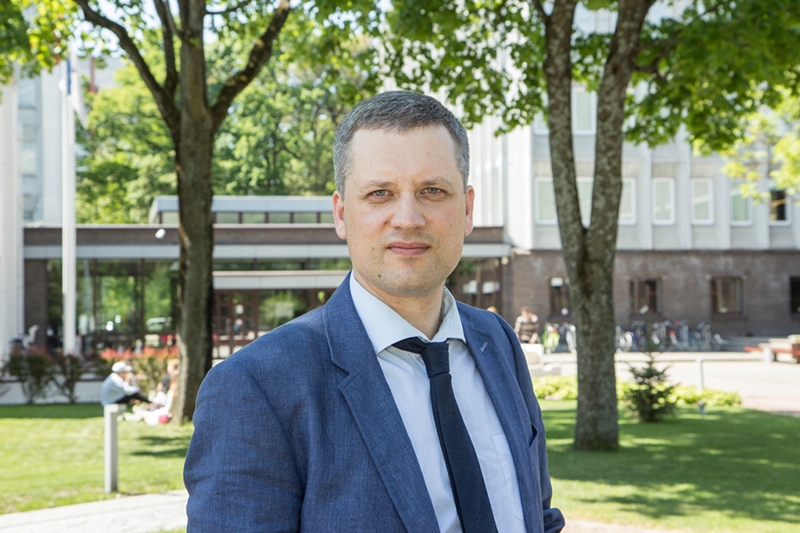Psychologists From the National Armed Forces Will Start Using Smart Device Created in Latvia
A new smart device has been created as part of the new computerised individual personality assessment system. It was the result of several years of cooperation between researchers from Rīga Stradiņš University (RSU) and Riga Technical University (RTU). The device will make psychological testing in the army more convenient and efficient. We talked to project leader Ainārs Stepens who is a neurologist and Head of the RSU Military Medicine Research and Study Centre (pictured).

Psychologists, like other specialists, need various auxiliary tools in order to perform their work at a high quality. If we compare this work with the work of a doctor, then a doctor might need an electrocardiograph and an X-ray, for example, to be able to make an accurate diagnosis and make decisions about treatment. The tools that psychologists usually have at their disposal are different types of psychological tests for testing intelligence, attention span, etc. There are also personality assessment tests to assess various aspects of someone’s personality.
The beginnings for developing this smart device for psychologists can be traced back to 2013, when a discussion was held between RSU and psychologists from the Latvian National Armed Forces. It was concluded that Latvian psychologists lack a clinical personality assessment tool. More precisely, it exists, but it is complicated and expensive to adapt to the Latvian cultural environment. Consequently, there were no instruments for clinical personality assessment that were legally available to psychologists in Latvia at that moment.
‘That same year there was a discussion on whether to choose an international instrument and adapt it to the cultural environment of Latvia, or to create a new one on our own. We concluded that we had sufficient competence and understanding of creating tests to develop a modern clinical personality test ourselves,’ remembers Ainārs Stepens who took on the role of project leader.
As part of the Biomedicine National Research Programme, a team of researchers from RSU started working on the development of a clinical personality test. During the programme, the test was developed in close cooperation with psychologists from the armed forces. They were the first to express a specific need on behalf of the end users. When the test was almost completed, further steps regarding product development were taken together with RTU.
‘This was one of the first grants that was co-funded by the Ministry of Defence (MoD) following the economic crisis of 2008. The project was funded by both universities and the MoD in equal parts to transfer the test to a digital platform and add sensors that would make it even more accurate. We worked on the production of an individualised, computerised personality assessment system (CPAS) for three years,’ says A. Stepens.
The smart device is ready
CPAS is a separate smart device with an integrated Latvian Clinical Personality Test. The device is supplemented by a tool to analyse decision-taking and response times and analyse pressure produced on the keys. This means that when someone answer the test’s questions, you can measure the force with which they press the key. ‘During development and research, we tried to understand if there was any additional benefit from measuring these two parameters. Smart devices now record the parameters from additional functions, and future research we will try to find out their real clinical value. An analysis of the original data shows that sensor data provides additional value information in diagnosing certain personality traits,’ reveals Stepens.
With the help of CPAS, a psychologist can identify various pathological personality traits, such as depression, anxiety, and post-traumatic stress disorder. At present, the armed forces have ready-made tools at their disposal that are capable of operating both in Latvia and on missions abroad regardless of wireless coverage. A psychologist can carry out a personality assessment of soldiers by asking them to complete the test. It can take from 40 minutes to an hour and a half. The test contains 322 statements with four answer options. The test results are then interpreted by psychologists. It is scientifically proven that the test provides all the necessary information about certain personality traits. CPAS can be used by psychologists from all sectors.
‘We are currently actively working on commercialising the tool with the support of the Investment and Development Agency of Latvia together with the RSU Technology Transfer Office. We have launched the commercialisation of the Latvian version, but we are working on developing a Russian version and potential commercialisation in the Russian language markets with the support of the Investment and Development Agency,’ says Stepens.
The article was originally published on the innovation and technology website Labs of Latvia




